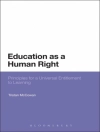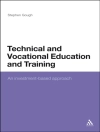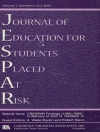In this long-awaited compendium of new and newly revised essays, Alison Wylie explores how archaeologists know what they know. Examining the history and methodology of Anglo-American archaeology, Wylie puts the tumultuous debates of the last thirty years in historical and philosophical perspective.
Table des matières
Preface
Acknowledgments
PART ONE. Introduction
Philosophy from the Ground Up
PART TWO. How New Is the New Archaeology, and Other Historical Essays
1. How New Is the New Archaeology?
2. The Typology Debate
3. The Conceptual Core of the New Archaeology
4. Emergent Tensions in the New Archaeology
5. Arguments for Scientific Realism
6. Between Philosophy and Archaeology
PART THREE. Interpretive Dilemmas: Crisis Arguments in the New Archaeology
7. The Interpretive Dilemma
8. Epistemological Issues Raised by Symbolic and Structuralist Archaeology
9. The Reaction against Analogy
10. Putting Shakertown Back Together: Critical Theory in Archaeology
11. Archaeological Cables and Tacking: Beyond Objectivism and Relativism
PART FOUR. On Being ‘Empirical’ but Not ‘Narrowly Empiricist’
12. ‘Heavily Decomposing Red Herrings’: Middle Ground in the Anti-/Postprocessualism Wars
13. Bootstrapping in the Un-natural Sciences—Archaeology, for Example
14. The Constitution of Archaeological Evidence: Gender Politics and Science
15. Rethinking Unity as a ‘Working Hypothesis’ for Philosophy of Science: How Archaeologists Exploit the Disunities of Science
16. Unification and Convergence in Archaeological Explanation
PART FIVE. Issues of Accountability
17. Ethical Dilemmas in Archaeological Practice: The (Trans)formation of Disciplinary Identity
Notes
Bibliography
Index
A propos de l’auteur
Alison Wylie is Professor of Philosophy at Washington University. She is the coeditor of Critical Traditions in Contemporary Archaeology: Essays in the History, Philosophy, and Socio-Politics of Archaeology (1989; 1995), Ethics in American Archaeology (2000), and Equity Issues for Women in Archaeology (1994).












